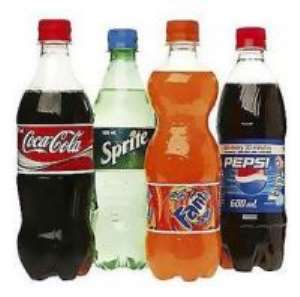
Most fizzy drinks will be cast-out from thousands of primary and secondary schools by the 2009-2010 school year under a beverage-industry agreement brokered by former President Bill Clinton.
The move denotes that high- calorie fizzy drinks will no longer be sold in elementary schools instead only unsweetened juice, water and low-fat milks will be sold in such schools, with diet drinks allowed in high schools.
The deal between country's top three beverage distributors and The William J Clinton Foundation and the American Heart Association (AHA), is signed to accomplish the aim to reduce the obesity rate which is expected to affect 87 percent of the school drinks market. The AHA represents key manufacturers and distributors of non-alcoholic beverages across the US.
Former US President Bill Clinton said, "Cadbury-Schweppes, Coca Cola, PepsiCo and the American Beverage Association have agreed to new guidelines limited the portion sizes and reducing the number of calories available to children through their products during the school day."
The deal came after the growing fears generated by reports of rising childhood obesity for which fizzy drinks are frequently partly blamed because of their high calorific content and popularity with children.
For every soft drink or sugar-sweetened beverage a child drinks every day, their obesity risk appears to jump 60%.
Soft drinks are intemperately consumed in part because companies promote them modishly and market them everywhere-in stores, restaurants, gas stations, museums, vending machines, and even schools. Companies spend approximately $700 million on media advertising each year, and hundreds of millions more on other promotional activities, which may involve musicians, actors, contracts with schools, and price discounting.
Several scientific studies have provided experimental evidence that soft drinks are directly related to weight gain. Beside the obesity, frequent consumers of soft drinks may also be at a higher risk of kidney stones and a slightly higher risk of heart disease. Frequent intake of such drinks may also increase the risk of osteoporosis-especially in people who drink soft drinks instead of calcium-rich milk. Dental experts continue to urge that people drink less soda pop, especially between meals, to prevent tooth decay (due to the sugars) and dental erosion (due to the acids).
As part of a healthy schools program to terminate childhood obesity, sugary and calorific drinks will no longer be available in vending machines and cafeterias, or at after-school activities held on school grounds. The restrictions will also apply to drinks schools purchase from the beverage distributors for sales at sporting events and fundraisers.
This will expand to the whole nation an initiative well afoot in New York City to restrict most soft drinks in public schools. The agreement implements on all public schools those have contracts with the distributors.
Robert Eckel - president of AHA, said the deal was "really the beginning of a major effort to modify childhood obesity at the level of the school systems."
As part of his campaign, Mr. Clinton said that he anticipated seeking similar accords with the food industry. He said, "We are turning a huge ship around in the middle of the ocean before it hits an iceberg."




 There’s nothing you can do for us; just give us electricity to save our collapsi...
There’s nothing you can do for us; just give us electricity to save our collapsi...
 Ghanaian media failing in watchdog duties — Sulemana Braimah
Ghanaian media failing in watchdog duties — Sulemana Braimah
 On any scale, Mahama can't match Bawumia — NPP Youth Organiser
On any scale, Mahama can't match Bawumia — NPP Youth Organiser
 Never tag me as an NPP pastor; I'm 'pained' the 'Akyem Mafia' are still in charg...
Never tag me as an NPP pastor; I'm 'pained' the 'Akyem Mafia' are still in charg...
 Your refusal to dedicate a project to Atta Mills means you never loved him — Kok...
Your refusal to dedicate a project to Atta Mills means you never loved him — Kok...
 2024 elections: I'm competent, not just a dreamer; vote for me — Alan
2024 elections: I'm competent, not just a dreamer; vote for me — Alan
 2024 elections: Forget NPP, NDC; I've the Holy Spirit backing me and nothing wil...
2024 elections: Forget NPP, NDC; I've the Holy Spirit backing me and nothing wil...
 2024 elections: We've no trust in judiciary; we'll ensure ballots are well secur...
2024 elections: We've no trust in judiciary; we'll ensure ballots are well secur...
 Performance tracker: Fire MCEs, DCEs who document Mahama's projects; they're not...
Performance tracker: Fire MCEs, DCEs who document Mahama's projects; they're not...
 Train crash: Railway ministry shares footage of incident
Train crash: Railway ministry shares footage of incident
